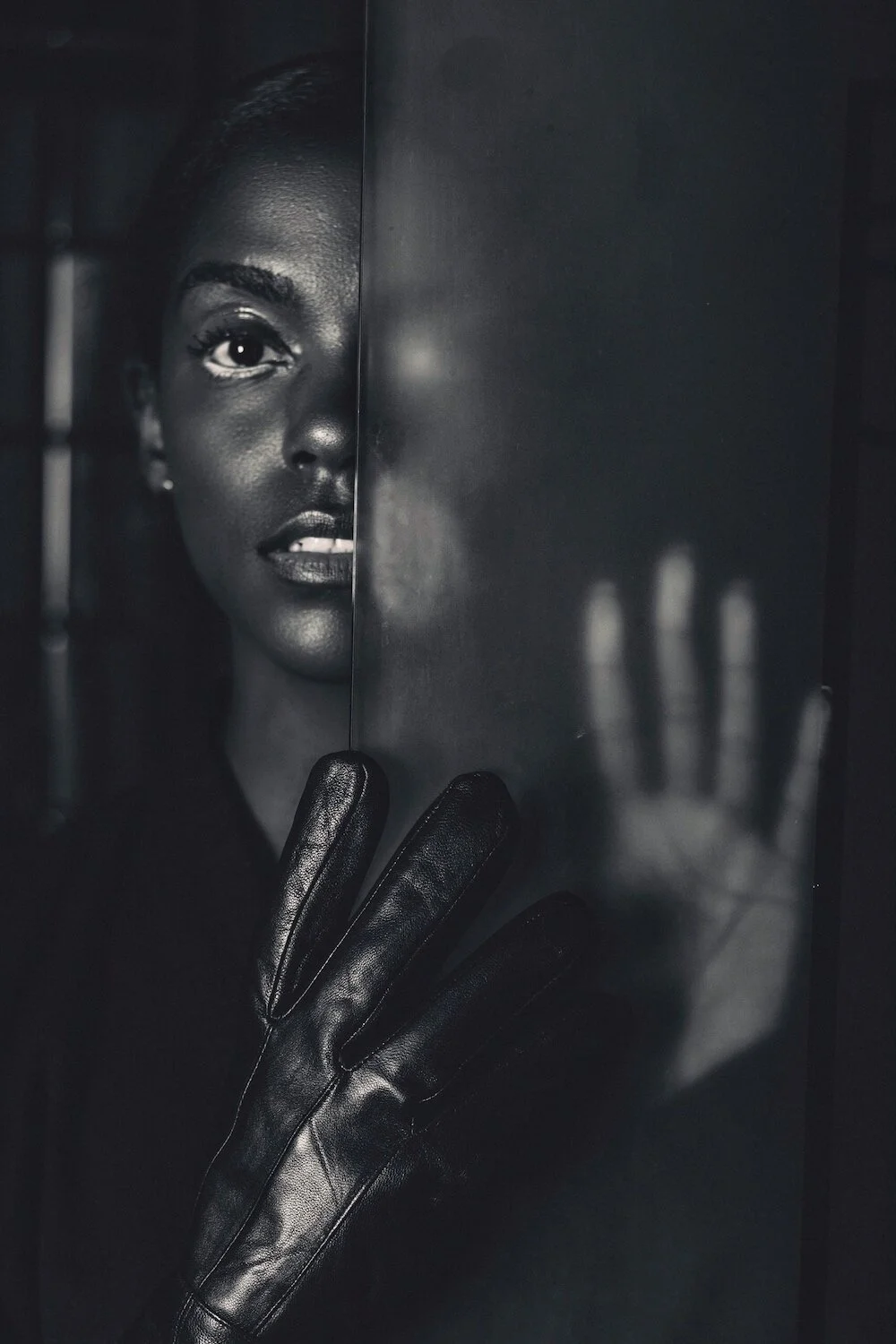Oye Diran
Oye Diran is a Nigerian born Fashion, Fine Art and Commercial photographer based in New York. Oye serves his clients through a creative mind-set, working on assignments that span from advertising, editorial, E commerce, fashion, portraits and weddings. To date, Oye's work has been published on CNN Africa, Afropunk, AFROELLE magazine, Munaluchi Bride magazine, New African Woman, Elegant Magazine and more.
Oye Diran
INTERVIEW BY THOMASINA R. LEGEND
Photography by Oye Diran
Model: Kristina Elise @kristinaxelis
Hairstylist & MUA: @sevenknows
Model: Ohwawa
Stylist: Olivia Marie
MUA: Moshoodat
Model: Stephanie NneNna Obasi
Hair: Miss Wu
MUA: Autumn Marie
Oye’s art sets him apart from the rest. Over time, Oye Diran has acquired incomparable skills to capture and evoke raw emotion in and through his images. Diran effortlessly fuses pops of colour with detailed motifs giving him signature images that are sophisticatedly stunning, elegant and visually powerful.
We chat with Oye about his love and passion for photography, how he got started and what triggered that newfound love affair for the arts.
Tell us a bit about yourself. Give us an insight into your background. My name is Oye Diran; I’m 27 and was born in Lagos, Nigeria. I came to America around the age of 12 and have been in New York ever since. I grew up with business oriented and creative parents. Growing up, I was always interested in the arts, which doesn't surprise me that I’m where I am today.
At what age did you become interested in photography? I picked up my first camera at age 19 and have been rocking ever since.
Why and how did you get into photography? What was the appeal for you? My introduction into photography started as just a hobby and it just took off for me. I started taking pictures for a non-profit I worked with in Staten Island. After that first event, I started getting more inquires and things just took off. The appeal for me is the fact that I enjoy capturing moments and people.
Did you go to college for photography or are you self- taught? I’m a self-taught photographer. Like I said, I picked up my first camera at age 19 and I’ve never looked back.
How did you go about starting your career? What were some of the hurdles encountered in the beginning? My career was never planned. I’m blessed to say that after the first event with the non-profit, my career just took off. One of the hurdles I faced was exposure, in the sense of just starting out as a new photographer and getting clients. I feel like once I got my footing as a photographer, I crossed that hurdle.
Why did you decide to focus on fashion & commercial photography? I decided to focus on fashion & commercial photography as a way to feed my creativity and passion. I enjoy creating images just the way an artist enjoys drawing/painting.
How would you describe your work to someone who has never seen it? I would say that my work is conceptual, graceful, and vivid.
Which photographers would you say have influenced you, and how did they influence your thinking, style, and career path? Photographers like Jingna Zhang, Mario Testino, and JD Okhai Ojikere influence me through their work ethic and body of work. They are able to capture images in a way that is very captivating, conceptual and “fine arts” based.
Are your parents supportive of your career path? Are they artistic and do you get your talent and passion for photography from them? Yes, my parents have never had a problem with my career path and have been very supportive. I get a lot of my talent and passion from my parents - the business-oriented mindset of my father and the creative mindset of my mother.
If you were not a fashion photographer, what would you be and why? If I were not a fashion photographer, I’d be a business owner of some sorts. Technically I am currently a business owner. I’ve always had a love for business especially since both my parents are business owners in their own right. I’ve also had my own business throughout high school i.e. Event planning and at some point ran a small online store that sold electronics.
How do you get inspired? What are some of the things you do to get inspired to shoot? I get my inspiration from anywhere. As far as my process for being inspired, I observe works of conceptual artists, films, nature, etc. Inspiration can come from anywhere.
How do you market yourself to your clients? I market myself via social media, collaborations and word-of-mouth. It's important to collaborate and build your network because opportunities come from doing so.
What are some of the most important things you recommend to young photographers? I would say that they should strive to learn and perfect their craft. Try each and everyday to be better than you were yesterday. Also, never compare yourself to any other photographers. You can be inspired, but don’t compare your work to their work. Try to collaborate with other creatives because you learn more through collaborating—about yourself and others—which is critical when starting off.
What are the biggest challenges of working in New York City? The biggest challenge is standing out in the industry. In NYC, there are a lot of talented photographers and standing out or getting your work noticed can be a big task.
Tell me what it’s like to work with new stylists, models, and designers. What are some of the difficulties you’ve faced with and what advice would you give to make it a better experience? It’s always exciting to work with new people because it can be a learning experience and opportunity for growth. Some difficulties would be learning each other’s characters, work ethic and how to effectively communicate with each other to execute a shoot or project. One advice that I’ll give is to always make sure to communicate prior to the shoot and learn how to effectively share your vision by creating a mood board as a way to direct the flow of the shoot. Also, always strive to make sure that everyone feels like an important part of the team because they are.
What do you consider to be the main difference between yourself and others like you in the fashion industry? What makes me different is that I tend to have a fine art and conceptual influence on my fashion photography.
Of all the images you’ve taken so far in your career, would you say you have a favorite and if you do, which is your favorite and why? It would be really hard for me to pick being that I have a lot of favorites.
Do you feel like you’ve met your goals and are successful? I don’t feel I've met my goals. I’m successful in what I do but still working to meet my goals.
And what would you say or describe as the best part about photography that you enjoy so much? The best part about photography for me is being able to create images that have a deep sense of meaning to others and myself.
What inspired the ‘Black Monarch’ series? Tell me how that came about and how you achieved the impact that you wanted to create with that series. I’ve always wanted to create a type of imagery that adequately portrays “the black woman” as the queen/goddess that she is. I just never knew how to showcase this till this series. Honestly, the impact was never planned, I just wanted to create and put it out there. I was blessed to have a very talented team that helped me bring this series, my vision, to life and we made it happen.
What does ‘VISION’ mean to you and can you describe your vision for your career to us? Vision to me is how you view yourself and ideas generally in the future. The vision I have for my career is to ultimately shoot Images that have a lasting or timeless effect on those that view them. I want to create images that captivate, influences, changes perspectives and move people.
How important would you say having a definitive vision is to anyone in the business? It's important because you have to know where you want to get to in the business. A journey without a set destination is aimless wandering, so set your goals/vision and work towards it.
Any final words of wisdom you would like to share? Always strive to become a better photographer than you were yesterday. Always keep learning. Don't compare yourself with others in the industry. We all have our own timing and uniqueness.


























